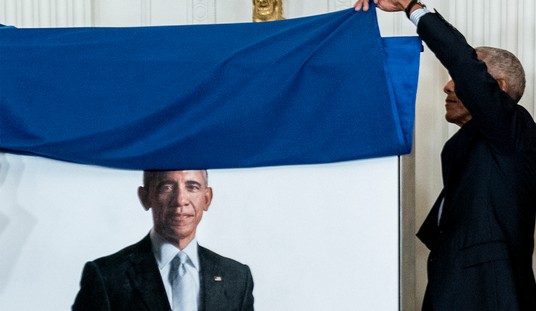Serious question: what is this “establishment” we’ve all been on about? Whatever it is, we each seem to accept on faith that the establishment is bad. Yet, we clearly don’t agree regarding what the establishment is or whom it represents. Donald Trump’s supporters have lauded him as anti-establishment, while Trump himself has claimed to be the establishment. Whatever the establishment is, it can’t be both these things. It can’t be both what Trump is and what he’s fighting against.
In practical terms, the establishment truthfully references only one thing, the incumbency class. Those people who campaign for power, and actually achieve it, are the establishment.
Of course, once we accept that definition, we encounter a paradox. If the establishment is inherently bad, then we have no means to overthrow it short of violent revolution and subsequent anarchy. If we displace the establishment with some alternative, our replacement becomes the new establishment, and we’re back to square one.
This is the limitation of anti-establishment rhetoric, and a fatal flaw in Donald Trump’s campaign strategy. He has built his entire brand around irrational opposition to the status quo, all in a bid to become the status quo. The problem is, now that he stands as the presumptive nominee, he needs help from the very establishment his campaign has demonized in order to achieve final victory. Turns out they’re not so eager. From the Associated Press:
Donald Trump is struggling in his efforts to unify the Republican Party behind his presidential campaign, the difficulty immediately underscored Thursday by a startling exchange of negative comments with GOP House Speaker Paul Ryan who said he was not ready to support him.
Although Trump is now the party’s presumptive nominee, Ryan said Thursday: “I’m just not ready to do that at this point. I’m not there right now.”
Gee, I wonder why?
Trump and his supporters have been served a lesson previously taught to Ron Paul and his supporters. The Paul campaign aspired to backdoor victory through parliamentary alchemy. Campaign organizers thought — through such means as challenging convention rules and passing esoteric resolutions — they could somehow hack the nomination process and force their candidate upon the electorate. As it turns out, things don’t work that way. You may be able to tweak a parliamentary maneuver here or there. You may be able, as the Paul campaign did in 2012, to win the vast majority of a state’s national delegates despite no proportional amount of support among actual voters. But such victories ring hollow in both tone and effect when they lack a crucial ingredient: genuine persuasion.
There is no substitute for getting people to enthusiastically support you. There is no way, in a free society, to circumvent people’s conscience and “win” though means other than persuasion. You may end up fumbling your way to small gains here or there. But you’re not going to secure the mandate and broad base of support necessary to move a comprehensive agenda.
Donald Trump has effectively secured the Republican nomination. But he has not earned the party’s actual support. Untold numbers of Republicans, from the likes of Paul Ryan to the humble strata of yours truly, have rejected Trump as the party’s standard bearer. It’s unheard of. But it was also inevitable after the strategy Trump employed became that of a bull in a china shop. He has burned every bridge he’s crossed, and offended every constituency and institution he needs to coalesce around him. As a result, he’s now left holding a nomination that amounts to a hollow crown.
The lesson for those mobilized around anti-establishment rhetoric is that we have an establishment for a reason. This is how the world works, boys and girls. You have to go out and actually persuade others that you’re on to something. That translates to entangling alliances which frequently require some degree of compromise. There’s no other way to do it in a free society. That’s how persuasion occurs. That’s how we each negotiate nearly every relationship in our lives. We work to convince one another. We strive to earn respect. We labor to engender trust. From that, a coalition is born.
The only alternative is force, and that won’t work in our yet-quasi-democratic system. A lot of his supporters now seem to think that, after securing the nomination, Trump somehow gets to pillage the Republican village, lay claim to the votes, and add them to his pile of plunder. But that’s not how elections work. Winning the nomination does not secure a single conscientious vote, not one. You still have to actually convince people to support you. And Trump is terrible at that.









Join the conversation as a VIP Member